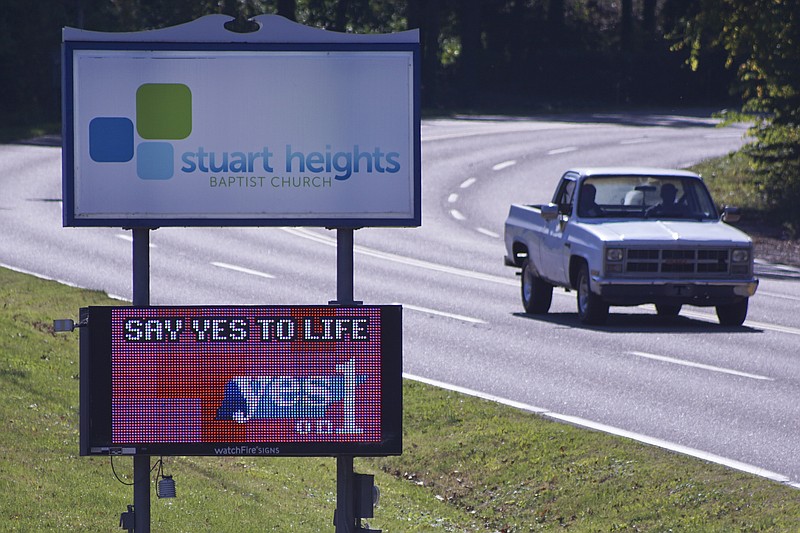With little fanfare last week, U.S. District Court Judge Kevin Sharp refused to dismiss a lawsuit by a Vanderbilt University law professor that could invalidate the results in last year's abortion ballot initiative.
In November's general election, Tennessee voters passed Amendment 1 that said simply, "Nothing is this [state] Constitution secures or protects a right to abortion or requires the funding of abortion."
The idea was that state law would not grant further access to abortion than what is found in federal law.
In 2000, the Tennessee Supreme Court, overturning a previous law, found that "a woman's right to terminate her pregnancy is a vital part of the right to privacy guaranteed by the Tennessee Constitution."
The current lawsuit by Tracey George, who serves as board chairwoman of Planned Parenthood of Middle & East Tennessee and was a coordinator of the Vote No on 1 campaign, and seven other voters rests on how the votes in the ballot initiative were counted. Amendment passage required the votes of 50 percent of the people who voted in the governor's race plus one vote. It wound up with 53 percent.
That language was an advantage for abortion supporters because someone who voted in the governor's race but did not vote for the amendment would be counted as if they had cast a "no" vote.
But the plaintiffs argued the only votes that should have counted were "those who cast ballots in both the governor's race and on the amendment to determine whether a majority of those casting votes in the governor's race also cast votes on the abortion amendment." If it can't be determined who cast ballots in both races, the lawsuit asks, the vote should be invalidated.
A previous United States Supreme Court ruling on a Tennessee case in Dunn v. Blumstein, in which "a citizen has a constitutionally protected right to participate in elections on an equal basis with other citizens in the jurisdiction," does not make the likelihood of success in George's lawsuit very high. But the state now will have to use taxpayers' money to defend it just the same.
Tennessee has used the same referendum process since its voting law was amended in 1953, and there's never been a requirement that "the very same people" had to vote in both a governor's race and in a ballot initiative, according to Secretary of State Tre Hargett.
Sharp also has issued a temporary restraining order, stemming from a separate lawsuit, preventing a new Tennessee law on abortion clinic regulation requirements from taking place at two clinics that currently do not meet those requirements. That lawsuit also challenges the new state law on a required 48-hour waiting period before obtaining an abortion and a 2012 law involving abortion doctors' admitting privileges in local hospitals.
Since abortions have been declining across the country for the last 25 years, abortion supporters have been desperate to secure footholds for the procedure wherever possible. Would that they would spend as much time on education to further eliminate the need for them.
